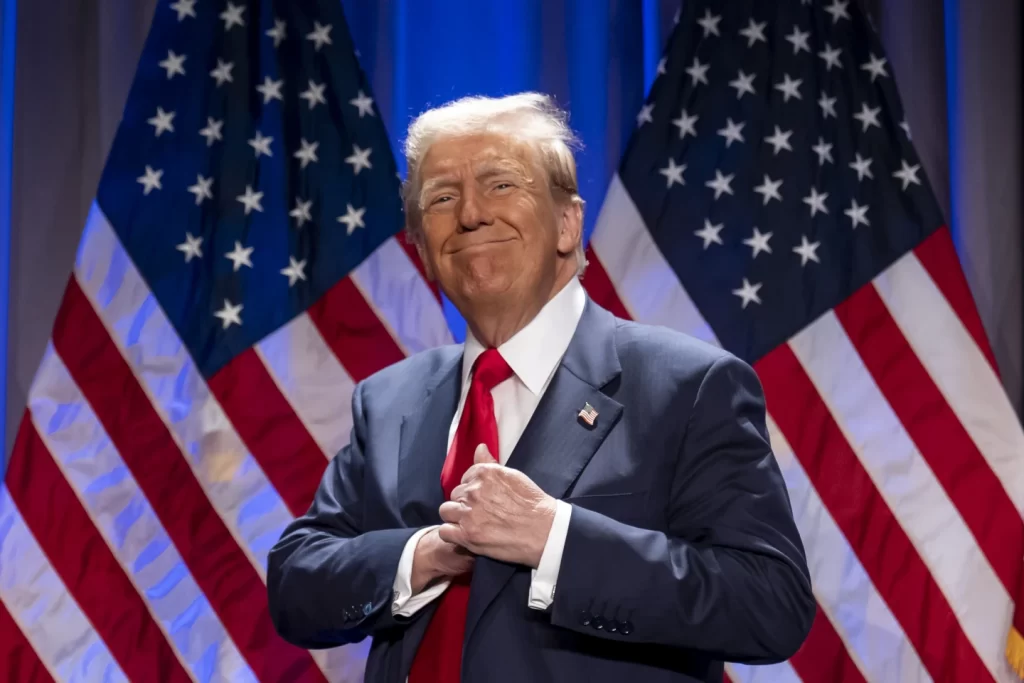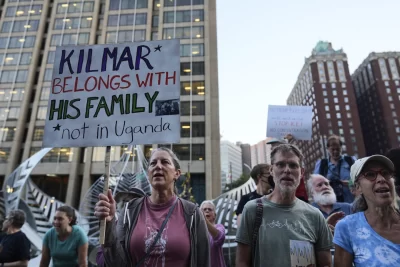
WASHINGTON — Donald Trump spent much of his first term feeling stung and betrayed by those he’d placed in power. This time, he’s not taking chances.
As he works to fill his administration a second time, Trump has turned to a head-spinning mix of candidates. Many of those he’s chosen are personal friends. Others are familiar faces on Fox News Channel or other conservative outlets. Some have extensive experience in the areas they’ve been chosen to lead, while others have seemingly none. Some seem chosen to shock and awe, some to reassure, others to unleash chaos.
Recent converts to his cause are lined up shoulder to shoulder with longtime allies. China hawks could serve in positions of power alongside a peace activist. But whatever the differences in ideology or strength of resume, above all, they will be there to carry out Trump’s will.
In his first term, Trump grated at efforts by aides and advisers to “manage” the newcomer to Washington and grew frustrated by the leaks that emanated from rival factions engaged in ideological warfare and competing for his ear.
Now, aides and allies said, he’s putting loyalty above all else, aiming to cut down on the infighting and maximize his ability to reshape Washington during his second tour in the Oval Office.
“When he was elected the first time,” Trump “didn’t have that kind of wealth of experience in D.C. or the relationships with people in Washington,” said Marc Lotter, a former aide who now works at America First Policy Institute, which is closely tied to his transition. “So many people he turned to were trying to take advantage of that to get him to their view, rather than fulfilling what was his view and what he was elected to do.”
Now, Lotter said of Trump, “if he makes a decision, he wants them to execute on it.”
Presidents always install trusted aides and those likely to support their agendas. But critics fear Trump is building an administration designed to root out any significant internal pushback to his policies and impulses.
Trump has long said the biggest mistake of his first term was choosing the wrong people. He had arrived in Washington as an outsider who had never served in government and says he relied on others for personnel recommendations.
“We did such a good job. But we’ll do a much better job now because I know the people now. I know the good ones, the bad ones. I know the weak ones, the strong ones. I know the stupid ones. I know the smart ones. I know them all,” he said at a rally in North Carolina during the race’s final stretch.
He has blamed aides for stymying his first-term efforts, lashing out at them as “dumb” and weak. The degree to which Trump faced pushback from his own appointees was often a reflection of the extraordinary nature of his orders.
His first term was filled with examples of aides who tried to outmaneuver Trump by slow-walking or ignoring directives they saw as ill-advised. Sometimes, they tried to mount 11th-hour campaigns to reverse them. Other times, they dragged their feet, hoping Trump would forget what he’d ordered and move on to something else.
One major example came just weeks before leaving office: Trump signed informal paperwork drafted by some of his political aides ordering all U.S. troops out of Afghanistan immediately, only to face intense pushback from his national security team. He ended up reversing course.
When he pushed to send active-duty U.S. troops to contain mass protests in 2020 after the killing of George Floyd, an unarmed Black man, by Minneapolis police, aides resisted, concerned over illegal use of the military against the country’s own citizens.
In 2016, Trump filled much of his team with high-powered business leaders, many of whom had worked in the industries they were tasked with regulating. They included names like Rex Tillerson, who had led energy giant ExxonMobil before becoming secretary of state.
Trump also tried to surround himself with a cadre of military brass he liked to refer to as “my generals.” This time, Trump has gone in a very different direction.
In many cases that means expertise is not required. Lee Zeldin, nominated as the administrator of the Environmental Protection Agency, has little history with climate or regulatory issues. Tulsi Gabbard, the former Democratic congresswoman nominated to lead the nation’s intelligence community, has been embraced by Kremlin allies for her dovish views on the war in Ukraine. And Pete Hegseth, a Fox News weekend co-host tapped to serve as secretary of defense, has no Pentagon experience.



